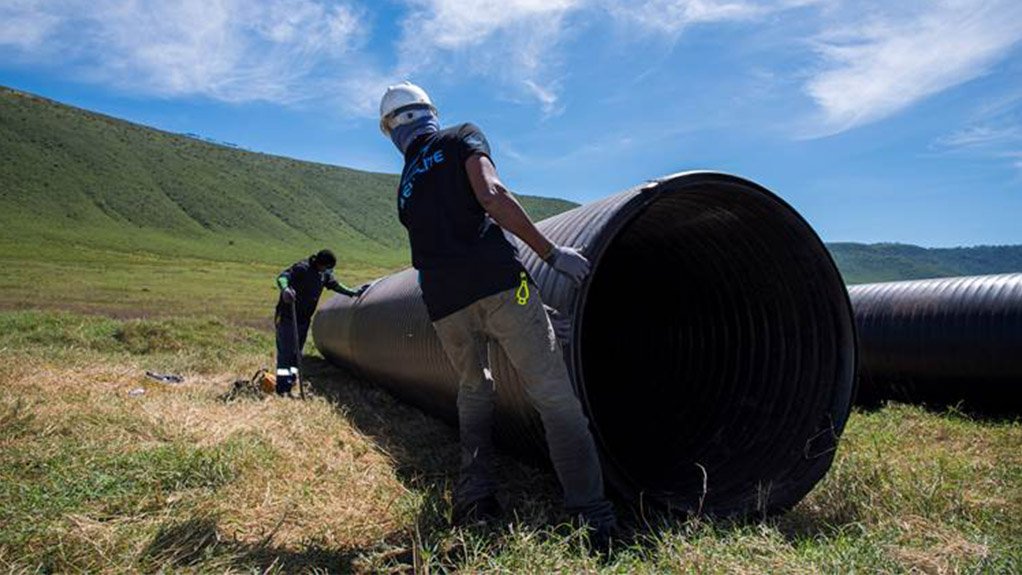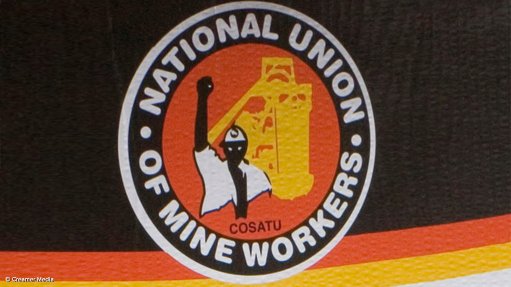Company offers HDPE pipes for sanitation in Kenya


100 YEAR GUARANTEE Science has since proven that HDPE pipes, such as Weholite will last over 100 years.
Bringing innovative solutions and providing and maintaining safe off-site and decentralised sanitation systems cannot happen without new investment and human technical capacity – which is particularly relevant considering the growing population density in urban centres, explains manufacturer Megapipes Solutions MD Jürg Flühmann.
He explains that Megapipes Solutions, a new company in Kenya, is offering large diameter plastic pipes to meet the challenge of poor sanitation through the use of Weholite, which has been tried and tested right across Europe, North America and in several African countries including Tanzania and South Africa.
Weholite is a lightweight, engineered structured wall pipe made from high-density polyethylene (HDPE), and is used extensively globally in low pressure or gravity applications for drinking water storage, storm water, sewage and various other liquids.
Further, polyethylene pipes, first installed in the 1950s, are known to be a reliable, long-term solution for water, stormwater and sanitary systems. Science has since proven that HDPE pipes, such as Weholite will last over 100 years.
“Weholite offers distinct chemical and physical advantages over other more traditional materials. Superior hydraulics and abrasion resistance mean that it will not corrode or deteriorate over time, making it a long-lasting solution for projects in Kenya,” says Flühmann.
Flühmann states that new production techniques have been combined with the latest raw materials technology to produce a durable pipe system with superior load-bearing properties.
This makes Weholite the preferred solution for many municipal and industrial applications in both the public and private sector – including stormwater management, sewage treatment systems, culverts, marine pipelines and irrigation water distribution.
With Kenya failing to achieve its Millennium Development Goal for increasing access to water and sanitation, only 30% of Kenyans have access to improved sanitation, or the use of sanitation facilities that hygienically separate excreta from human contact.
This means that about 30-million Kenyans are still using unsafe sanitation methods like rudimentary types of latrines, and about six-million are defecating in the open, he notes.
In addition, access to improved sanitation is a major challenge both in urban and rural areas. It costs the country an estimated $324-million a year for the gaps in its sanitation and hygiene services, according to the World Health Organisation and UNICEF Joint Monitoring Programme.
In urban areas, the challenge is even more daunting as urban growth outstrips the provision of basic services, sanitation included. Moreover, urban planning hardly ever precedes settlement, making it much harder for utilities to provide water and sanitation services.
Flühmann highlights that, at the same time, having a toilet, either connected or not connected to a piped wastewater system is only one part of fecal waste management.
Sanitation in the urban areas is further compounded by the inter-linkages with other services including storm water drainage, solid waste and water supply.
Weholite pipes will be readily available in Kenya with the construction of a factory for manufacturing of the large diameter plastic pipes for drainage and sanitation projects in Kenya and neighbouring countries, already under way.
Megapipes will be manufacturing innovative products for the growing requirements of water storage, sanitation and drainage projects in Kenya, contributing to the local economy and industrialisation process and avoiding importation of such products, he concludes.
Article Enquiry
Email Article
Save Article
Feedback
To advertise email advertising@creamermedia.co.za or click here
Press Office
Announcements
What's On
Subscribe to improve your user experience...
Option 1 (equivalent of R125 a month):
Receive a weekly copy of Creamer Media's Engineering News & Mining Weekly magazine
(print copy for those in South Africa and e-magazine for those outside of South Africa)
Receive daily email newsletters
Access to full search results
Access archive of magazine back copies
Access to Projects in Progress
Access to ONE Research Report of your choice in PDF format
Option 2 (equivalent of R375 a month):
All benefits from Option 1
PLUS
Access to Creamer Media's Research Channel Africa for ALL Research Reports, in PDF format, on various industrial and mining sectors
including Electricity; Water; Energy Transition; Hydrogen; Roads, Rail and Ports; Coal; Gold; Platinum; Battery Metals; etc.
Already a subscriber?
Forgotten your password?
Receive weekly copy of Creamer Media's Engineering News & Mining Weekly magazine (print copy for those in South Africa and e-magazine for those outside of South Africa)
➕
Recieve daily email newsletters
➕
Access to full search results
➕
Access archive of magazine back copies
➕
Access to Projects in Progress
➕
Access to ONE Research Report of your choice in PDF format
RESEARCH CHANNEL AFRICA
R4500 (equivalent of R375 a month)
SUBSCRIBEAll benefits from Option 1
➕
Access to Creamer Media's Research Channel Africa for ALL Research Reports on various industrial and mining sectors, in PDF format, including on:
Electricity
➕
Water
➕
Energy Transition
➕
Hydrogen
➕
Roads, Rail and Ports
➕
Coal
➕
Gold
➕
Platinum
➕
Battery Metals
➕
etc.
Receive all benefits from Option 1 or Option 2 delivered to numerous people at your company
➕
Multiple User names and Passwords for simultaneous log-ins
➕
Intranet integration access to all in your organisation



















